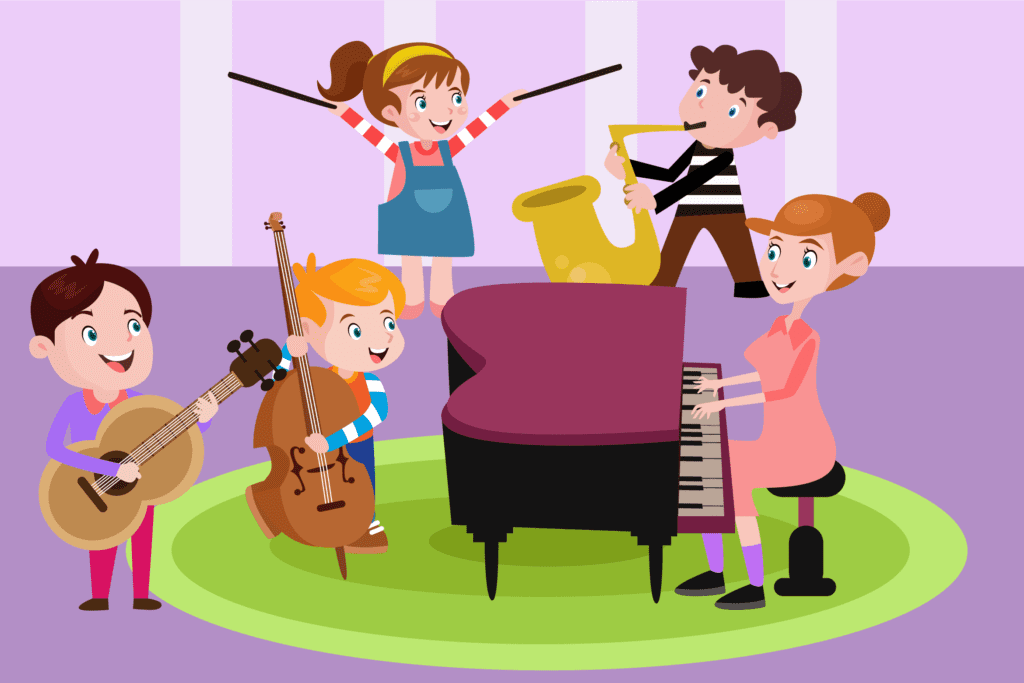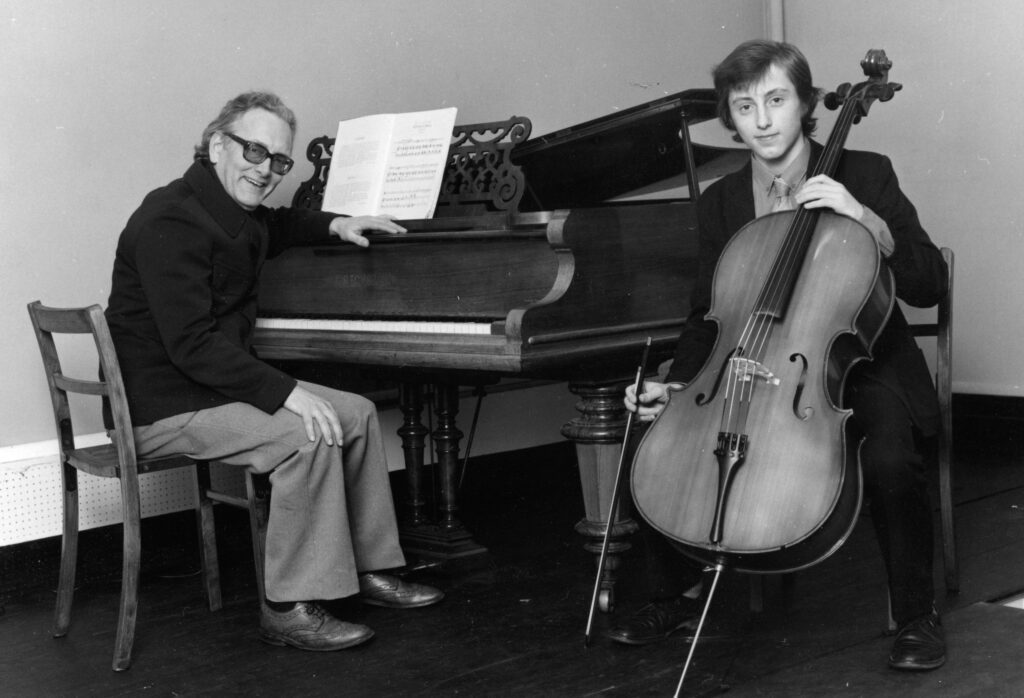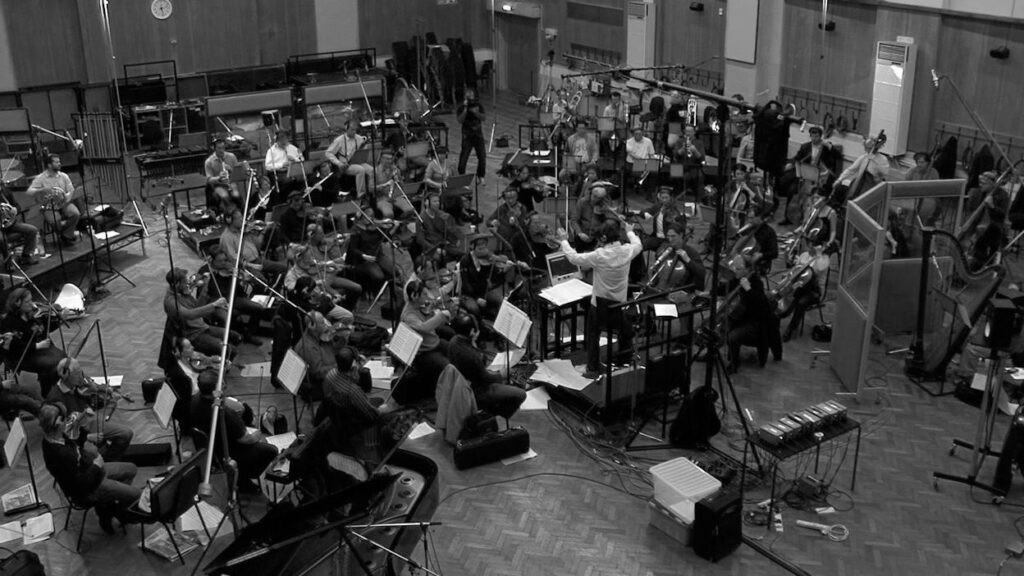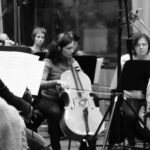There’s an inexplicable power of music that can transport us to different places and stir up a medley of emotions within us. For many of us, music is not just an idle pastime or background noise; it’s a powerful companion that guides us through the various chapters of life. With its ability to ignite our passion, soothe our souls, and spark our creativity, music is a transformative force that holds an intense sway over our hearts and minds. Whether you’re a seasoned musician or a casual listener, you can harness this power to enrich your life in surprising ways.

Consider this—Think back to a time when a particular song or melody elicited a strong emotional response within you, or even evoked vivid memories. Isn’t it fascinating how a simple combination of sounds can have such a profound, almost mystical, effect on us?
“Music can lift us out of depression or move us to tears – it is a remedy, a tonic, orange juice for the ear. But for many of my neurological patients, music is even more – it can provide access, even when no medication can, to movement, to speech, to life. For them, music is not a luxury, but a necessity.”
Oliver Sacks
So often, music is the invisible companion boosting our spirits and soothing our souls. It’s the power of music that strings together the moments of our lives, making us laugh, cry, think, and inspire. It’s more than just a backdrop—it has the power to transform an ordinary day into something extraordinary.
My personal journey of discovering the joys in music is a testament to its profound impact and a warning about how societal expectations can tarnish its enjoyment. In this article, I invite you to journey with me as we explore the offering of music, its therapeutic effects, and how you can cultivate a deep, enriching connection with it. Remember, music isn’t just sound—it’s emotion, memory, comfort, and above all, a source of joy and inspiration.
“Music gives a soul to the universe, wings to the mind, flight to the imagination, and life to everything.”
Plato
Table of Contents
Unearthing the Hidden Joys in Music: My Story
Music has always been a part of my life. My father was a professional musician and my mother sang in the church choir. I remember hearing the music of Chopin and Bach played on the piano as a young child. My parents took me to classical music concerts and when I was five, I was bought a cello and started lessons.

Whether it was nature or nurture, music was something I took to very quickly and excelled at. It was a talent that I nurtured and honed over the years. As I grew older, my passion for music led me to Christ Church Choir, Oxford, where I had the privilege of singing under the guidance of esteemed musicians like Simon Preston and Francis Grier.
However, there was a persistent undercurrent of unhappiness amid my immersive music journey. Some of my music tuition was cruel and abusive while at the same time as I was suffering emotional neglect at a boarding school. For example, in one incident I was not allowed to use the bathroom and had to wet myself and stand there for 90 minutes.
Teachers of music theory, a fundamental aspect of music education, failed to captivate my interest. The rigid rules and technicalities of the common-practice period felt like a hindrance to my creative spirit.
My experiences at Oakham School only intensified this disillusionment. Bullying and arrogant teachers tainted my perception of music as a profession. The toxic environment left me feeling disgusted and questioning my path in music.
But as they say, every cloud has a silver lining. It was during this period of doubt and confusion that I discovered a new perspective on music. I realized that my love for music was not tied to the formalities and structures that had disillusioned me. It was the sheer joy of creating and connecting through sound that fueled my passion.
Discovering the Therapeutic Power of Music
With this newfound understanding, I embarked on a journey of self-discovery. I sought out alternative approaches to music education that aligned with my values and aspirations. I explored different genres, experimented with improvisation, and collaborated with like-minded musicians who shared my vision.
Through this exploration, I discovered the power of music to transcend boundaries and touch the depths of the human soul. It became a tool for self-expression, healing, and connection. I realized that music is not confined to concert halls and academia; it is a universal language that speaks to the hearts of people from all walks of life.
Perfect Harmony: The Intersection of Music and Mental Health
Emerging research increasingly illuminates the symbiotic relationship between music and mental health. Studies suggest that when you immerse yourself in music, your brain releases dopamine— a neurotransmitter associated with feelings of pleasure and satisfaction. Does this mean music could be a powerful antidote to stress, anxiety, and depression? Let’s delve deeper into this fascinating connection.
When you marvel at the melody of your favorite song or lose yourself in the soothing rhythm of an instrumental piece, you are not just enjoying a form of entertainment. You’re also engaging in a form of emotional release. Emotional release does not imply being overly ecstatic or moved to tears by a heartbreaking song. It means finding an outlet for your emotions in the soothing notes and powerful chords of the music you hear. This can help mitigate feelings of stress and anxiety, promoting your emotional wellbeing.
Substantive evidence supports this claim. The British Academy Of Sound Therapy found that 89% of people reported music as effective in improving their mood. They also discovered that listening to just 13 minutes of your preferred music genre has the potential to reduce feelings of tension, sadness and confusion.
You may be wondering, “Is it only listening to music that has this effect, or can creating music add to my mental wellbeing too?” Absolutely, the act of creating music and playing instruments has been linked with an increase in self-esteem and cognitive skills.
To harness the therapeutic power of music, it’s essential to be conscious and deliberate in your approach. Listen intentionally, with an aim not just to hear but to connect mentally and emotionally with the music. When you do this, each note becomes not just sound but a soothing balm, a gentle embrace or a joyful dance. The rhythm, melody, and harmony merge to become a conduit for emotional release and mental renewal.
In conclusion, cultivating a conscious and deep relationship with music can unlock a treasure trove of mental health benefits.
The Beauty of Music: Unmasking Its Hidden Benefits
Today, I find joy in sharing my music with others. Whether it’s performing in intimate settings or composing pieces that resonate with people’s emotions, I have found my purpose in music. It is no longer just a profession; it is a means of spreading love, joy, and inspiration.
My journey has taught me that music is not defined by the constraints of theory or the opinions of others. It is a deeply personal and subjective experience that can be shaped and molded according to one’s own vision. It is a journey of self-discovery, growth, and resilience.

Just like a river carving its path through the landscape, the flowing notes of a melody can leave a lasting imprint in our hearts. Whether it’s the energizing strumming of a guitar that propels you through your morning jog, the soothing piano composition that blankets your thoughts in tranquility on stressful days, or even the orchestral crescendo that gives you goosebumps – each musical moment is a personal and transformative journey.
Sharing the joy of music is not about becoming an overnight virtuoso, nor is it about mastery over key signatures or complex musical theories. It’s about honing your ability to listen – to understand the story behind the composition, to feel the stark emotional contrast between the major and minor chord, and most significantly, to allow music to reach deep into your core, evoking feelings you may never have known existed.
If you yearn to develop this deep, enriching connection with music, there are a few practical steps that you can take. Start by being present when you listen to music. Give it your undivided attention. Recognize the different instruments, listen to the lyrics, and most importantly, take note of how it makes you feel. This exercise of active listening can sharpen your musical appreciation skills and deepen your emotional responses.
Moreover, experiment with various genres and styles. Step out of your musical comfort zone. Perhaps you never considered yourself a fan of jazz, but how will you know if you don’t give it a try? Just like we need to sample different cuisines to appreciate the diversity of flavors, we likewise need to explore a vast array of music to pave a path towards developing our unique musical palette.
Remember, the beauty of your relationship with music is that it is uniquely yours. In this rapidly evolving world, amidst the chaos and cacophony, find solace in the rhythmic beats and melodious tunes. Embrace music for the joy it brings to your heart and the peace it brings to your soul. Keep exploring, keep discovering, and keep immersing yourself in the magical lyrical journey. Your symphony of joy awaits!
So, to all those who have felt disillusioned or discouraged in their musical pursuits, I urge you to look beyond the confines of traditional education and societal expectations. Find your own voice, your own path, and let the music guide you. Embrace the joy that comes from creating and connecting, and let it fuel your passion.
Remember, the power of music is not just about the notes on a page or the accolades that come with success. It is about the transformative force it carries, both for the listener and the creator. It is about the moments of pure bliss and connection that can only be experienced through the language of sound.
So, let the music be your guide and embark on your own personal journey. Find joy in the melodies, the harmonies, and the stories they tell. And most importantly, never lose sight of the magic that music brings into our lives.

